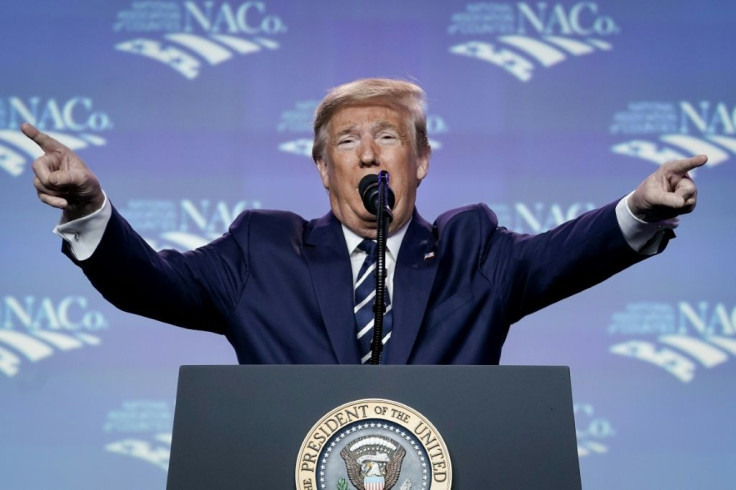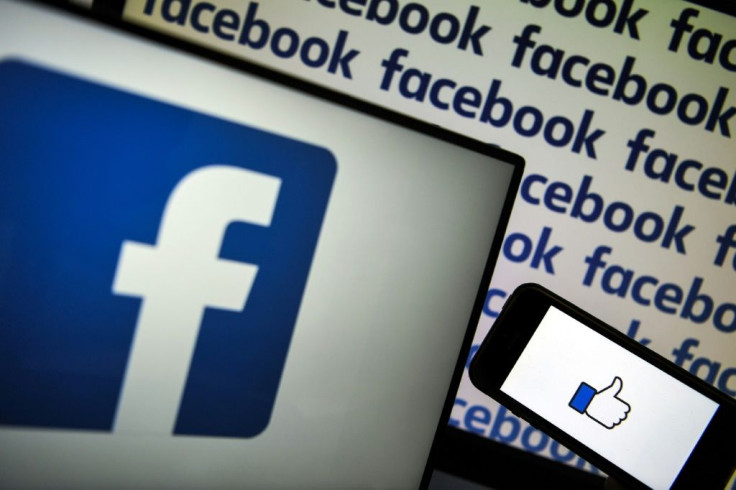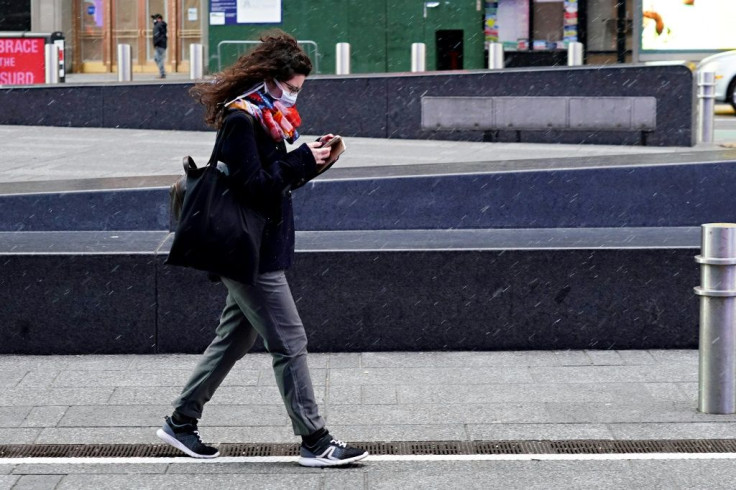Amid Pandemic, White House Race Becomes Digital Dogfight

The 2020 US presidential race is becoming a digital-first campaign as the coronavirus pandemic cuts candidates off from traditional organizing and in-person events.
On the surface, President Donald Trump has the edge over Democrat Joe Biden because of the incumbent's extensive digital infrastructure and large social media following.
But Biden has been stepping up his digital presence and is getting a boost from a handful of outside organizations seeking to counter Trump's messaging on social platforms.
Both sides agree that digital will play a critical role in the 2020 White House race as social media have taken the place of rallies and door-to-door campaigning.
"The digital campaign has always been important. What has changed now is that it's the only show in town," said Republican digital strategist Eric Wilson, who has no direct role in the Trump campaign.
Wilson said the Trump campaign's experience since 2016 means it has a head start while Biden has been slow to embrace a digital strategy.
"Voters are consuming politics as entertainment and Biden doesn't seem to grasp his role as a social media influencer and doesn't see any interest in changing that," Wilson said.
Trump has some 81 million Twitter followers compared with 5.8 million for Biden, and similar advantages on Facebook and other platforms.
But Biden and an array of progressive organizations have been working to flood the internet with messages to neutralize Trump and his supporters.

Digital advertising for the 2020 election is expected to reach $1.8 billion, according to research firm Advertising Analytics, which boosted its estimates by 13.5 percent due to the pandemic.
The progressive policy group Acronym and its political action committee Pacronym have pledged a $75 million digital campaign to bring out voters for Biden.
"Since last August we started to counter what we knew would be a sophisticated digital operation by President Trump," said Acronym founder Tara McGowan.
"We wanted to provide air cover for whoever the Democratic nominee would be since we knew the nominee would have a time and resources deficit."
Research by the group found a 3.6 percentage point drop in Trump's approval rating among "persuadable voters" who have seen Pacronym's digital ads.
Acronym's analysis of online ad spending showed Trump has spent over $62 million on Facebook and Google advertising since the 2018 midterm elections, compared with $21.9 million for Biden.
But the analysis showed Biden and progressive groups began outspending Trump and his backers in early May on Facebook, and narrowed the gap on Google.
"I don't think the candidates themselves need to be as comfortable on social media as much as they need to hire experienced digital staffers," McGowan said.

"We've seen the Biden campaign make leaps and bounds in their digital strategy."
Other groups are also active: the large Democratic party organization Priorities USA is pledging to spend $150 million to defeat Trump, with at least $40 million in digital.
The newly formed political action group Defeat Disinfo plans to use paid influencers on social media and counter misinformation before it goes viral.
"My experience is that the total share of volume of conversation about a candidate is driven not by the campaigns themselves but by media, activists and other organizations," said Alan Rosenblatt, a Democrat-aligned digital strategist with Unfiltered Media and an adjunct professor at George Washington University.
"That's where the battlefield is and these groups can have a tremendous impact."
Rosenblatt added that Biden "has a lot of headroom to grow" on social media while Trump has probably maxed out with a social media army which has a considerable number of automated accounts or "bots."
Both campaigns will be testing the limits of online platforms' policies on manipulation and microtargeting, as Trump ramps up his war of words against Silicon Valley platforms.
"The shift to a digital focus in the 2020 election means online disinformation and propaganda will become more widespread and more potent," said University of Texas professor Samuel Woolley, who researches computational propaganda.
Woolley's research suggests campaigns are increasing their use of geolocation tools which can surreptitiously gather information about voters using their smartphones.
"Campaigns can find out which people are going to a gun range, to church or to Planned Parenthood, and they can turn that into actionable information," Woolley said.
"They might send messages out to try to get people to vote, or to discourage people from voting."
Jeffrey Chester of the Center for Digital Democracy warned of privacy concerns as political campaigns adopt technologies from digital marketers using location data and predictive analytics.
These targeting tools raise the same issues as the Cambridge Analytica scandal over private data being used to fashion psychological voter profiles.
"You are going to see artificial intelligence and machine learning used to make predictions about voters," Chester said.
"The campaigns are using all the latest tools to influence voters under the radar, and it's completely unregulated."





















